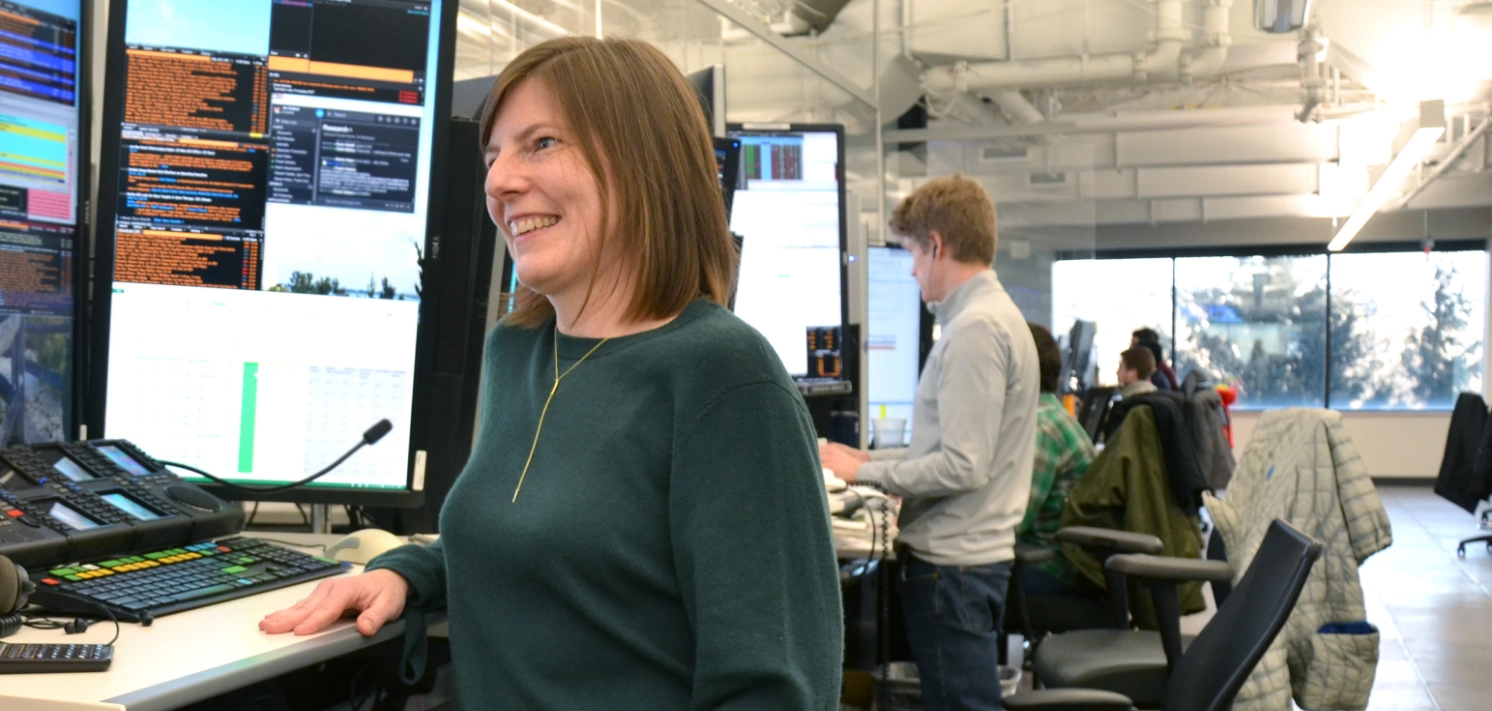

My career began as an intern at Susquehanna 27 years ago. I was an International Studies major, so the typical career path was certainly not finance. I had never considered working in the stock market, but I was intrigued by the fast-paced environment and opportunity to learn. I took a chance and applied to Susquehanna, ending up as an intern on the floor of the Philadelphia Stock Exchange my sophomore year of college. I loved the ever-changing financial markets and Susquehanna’s philosophy on decision making. This led me to accept a full-time role at Susquehanna and has kept me here for all these years.
My first full-time position was on the international trading desk. We were a much smaller firm at the time, so I did a bit of everything - operations, stock loan, and research. When Susquehanna started a new Equity Research department, I raised my hand to be considered for the role. I didn’t have much experience, but I knew I could apply the decision making skills I learned at Susquehanna to this new venture. I am proud to say what started as a small, standalone research team in Bala Cynwyd has now grown to 38 analysts worldwide fully embedded with the trading desks.
As an analyst, I am often faced with uncertainty whether it be determining the impact of breaking news, the timing of an event, or modeling assumptions. "Early in my career, I had to learn to let go of the fear of being wrong and focus instead on making well supported trading recommendations. Perfection is an impossibility, so accepting things won't always go your way is key to success." This doesn’t happen overnight; it is a continual learning process through Susquehanna’s education program, real life examples, and discussion with peers.
In Research, we tell analysts to “trust the model.” This means trust your hard work and preparation on the stocks or situations you are covering, but also continually evaluate what you could be missing. Both - what you know and what you don’t know - should be taken into account when deciding whether to recommend a trade. Using this analytical process should lead to more successful outcomes. In short, it’s not about one single trade, it’s about making consistent, good decisions every day.